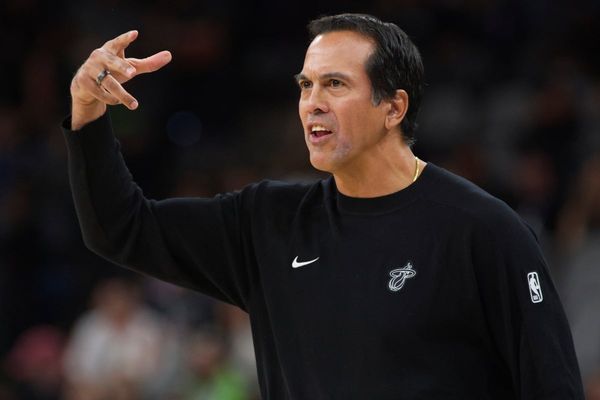
Perhaps the most revealing postmortem on Republicans’ election night meltdown came from the vice-president, JD Vance.
After a night that saw Democratic governors elected in New Jersey and Virginia after focusing on the rising cost of living, and a New York mayoral campaign victory built on housing access, Vance showed a particular kind of remorse.
“We need to focus on the home front,” he wrote on the X social media platform. “The president has done a lot that has already paid off in lower interest rates and lower inflation, but we inherited a disaster from Joe Biden and Rome wasn’t built in a day.”
Vance’s plea might be seen as an ever-so-careful and delicate rebuke of his boss, Donald Trump, who has spent the past month gallivanting around the world – he claims to have ended eight wars – and pursuing his dream of a $300m White House ballroom.
It’s the economy, stupid, as the timeworn saying goes, and affordability in particular. The age of aspiration has given way to the age of anxiety. The price of incumbency is that restless voters always believe that the grass is greener on the other side.
A year ago Democrats were punished for “bad vibes” around the cost of living for the middle class, however much they protested that the economic data was positive. In that climate Trump represented change: at rally after rally, he promised to lower prices from day one. Many voters felt it was worth taking a gamble in case he was right.
Now the tables are turned. Trump occupies the White House but inflation remains hard to crack. The period from July to August saw the biggest month-to-month jump in grocery prices in three years. And average grocery prices in September were about 2.7% higher than they were a year earlier. There have been especially steep increases in the prices of coffee (up 18.9%) and beef and veal (up 14.7%).
Add to that the fundamentals of life like buying a home, once a foundation stone of the American dream. Millions of people now fear they will have to wait until their 40s or beyond.
Trump’s critics argue that, since taking office in January, he has been making the situation worse, not better. His use of tariffs as a crude tool of diplomacy have had a negative impact. His indulgence of tech companies and datacentres has ensured an AI-driven boom in the stock market that does little to help people’s everyday lives.
Interviewing Trump for 60 Minutes, journalist Norah O’Donnell pointed out: “When the stock market is doing well, that doesn’t affect everybody. Not everybody’s invested in the stock market –”
The president insisted, “It does. Oh, it does, it does,” but failed to explain.
Pressed on grocery prices, he pivoted to his favourite defence: blaming Biden.
Indeed, early in his second term, Trump expressed surprise at the national obsession with “groceries”, rolling the word around his mouth like an exotic fruit. Lately he has been saying, “Grocery prices are way down.” Like Biden before him, he risks missing the national mood.
And he has poured fuel on those flames with his shows of excess. As thousands of federal workers were furloughed without pay because of the government shutdown, Trump demolished the East Wing of the White House to build a $300m ballroom, posted photos of the Lincoln Bathroom made over in marble and gold and threw a Great Gatsby-themed party at his private club, Mar-a-Lago in Palm Beach, Florida.
If Democrats had used AI to come up with a deepfake designed to make Trump look out of touch, they could not have done better.
Trump’s disapproval rating is at an all-time high – and that at least partly helps explain Tuesday night’s election results. In New York, the epicentre of the affordability crisis, mayoral candidate Zohran Mamdani was relentlessly disciplined in bringing up the issue in every media interview.
He spoke of an ambitious agenda to freeze the rents for more than 2m rent-stabilised tenants, make buses fast and free and deliver universal childcare across the city. This resonated with people hacked off not only by Trump’s ostentatious “let them eat cake” behaviour but also a Democratic party establishment long content with the status quo.
“For as long as we can remember, the working people of New York have been told by the wealthy and the well-connected that power does not belong in their hands,” Mamdani said. “Fingers bruised from lifting boxes on the warehouse floor, palms callused from delivery bike handlebars, knuckles scarred with kitchen burns: these are not hands that have been allowed to hold power.”
If there is a glue that holds that current Democratic coalition together, it is affordability. Gubernatorial candidates such as Mikie Sherrill in New Jersey and Abigail Spanberger in Virginia addressed it too. Spanberger’s opponent Winsome Earle-Sears became distracted by culture war issues such as transgender athletes that voters found trivial by comparison.
Heather Williams, president of the Democratic Legislative Campaign Committee, told reporters on Wednesday: “The earthquake wins last night reaffirmed that voters rebuke GOP extremism and that the affordability crisis remains the issue that is on voters’ minds.”
Trump’s own assessment suggested that he didn’t get the message. He wrote on Truth Social: “‘TRUMP WASN’T ON THE BALLOT, AND SHUTDOWN, WERE THE TWO REASONS THAT REPUBLICANS LOST ELECTIONS TONIGHT,’ according to Pollsters.”







